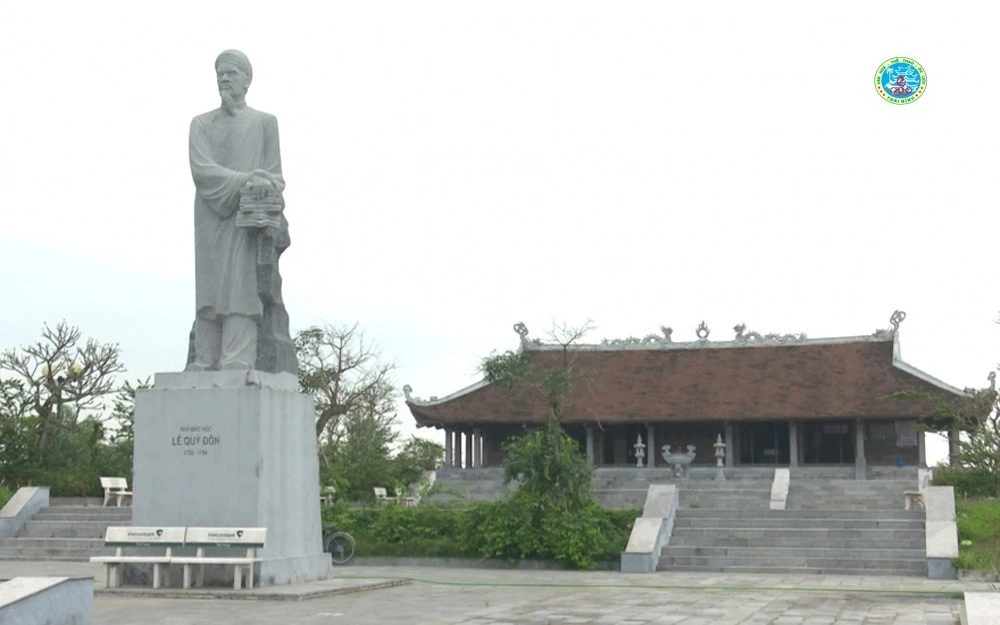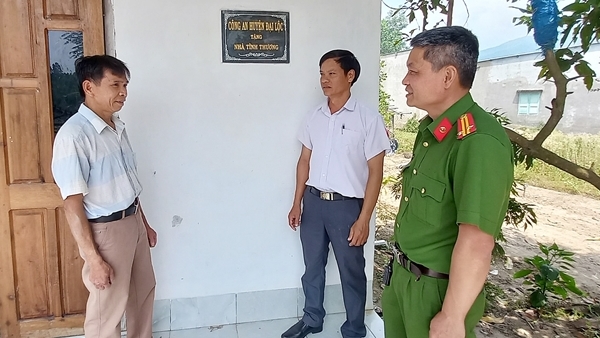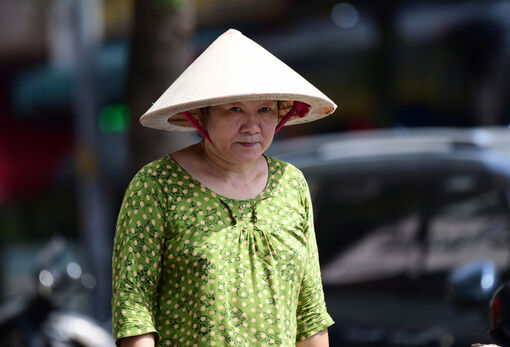Remove invisible barriers
Sitting in a small office in Hanoi, Ms. Nguyen Mong Hoai - a cadre and party member - still remembers clearly her decision to have a third child many years ago. It was a choice that stemmed from the wishes of the whole family, but it was also a decision that made her ponder a lot.
“My husband and I thought very carefully and accepted the possibility of being disciplined. However, I still couldn’t help but feel guilty… because as a party member, I did something that went beyond the rules,” she said.
For her, the most troubling thing is not the reprimand she received, but the worry that the team will be affected by incomplete competition results. “I don’t want my personal matters to make things difficult for the unit. But there are things that my heart cannot help but do,” she said, her voice dropping and then she smiled slightly, as if to wrap up the past time.
However, since reading Instruction No. 03-HD/UBKTTW issued on March 20, 2025 by the Central Inspection Committee, which states that party members who have a third child will no longer be subject to disciplinary action, Ms. Hoai felt as if a burden had been lifted from her heart for so long.
According to this guideline, the act of having a third child is no longer considered a violation, in line with current population policy and laws. Not only does this document remove a major “bottleneck” in the thinking of many Party members, it also represents a change in the Party’s approach: from managing by administrative orders to respecting individual choices based on real life experiences.
“When I read that document, I was really moved. I no longer felt like a “ flawless ” person , but felt that the organization shared, listened to, and respected the very ordinary choices of each person,” Ms. Hoai expressed. She also jokingly said: “Thinking back, I feel like I was… ahead of the times. Even though it was just a personal matter, I believe that people like me have contributed a small part to changing social awareness about having children in the context of an aging population.”
Not only Ms. Hoai, many other party members also think that the new policy is a reasonable and logical move. According to Ms. Nguyen Thanh Nhi - another cadre and party member working in Hanoi, this is a humane decision, close to reality.
“Many families now have the means and desire to have more children, but in the past they had to hesitate because of disciplinary constraints. Now, the policy has created comfort and relief, while contributing to maintaining the race and adding human resources to the country,” said Nhi.
From an organizational perspective, Ms. Nhi believes that when party members are trusted and understood, they are more motivated to maintain their qualities, contribute and stay committed for the long term.
Sharing the same view, many party members who used to be reserved about having children now openly share their desire to have more children without worrying about being “labeled” as a violator. “Not everyone who has a third child does so out of ignorance or recklessness. Many people like me have plans, have conditions, and consider it a personal happiness that needs to be respected. Now that the organization understands that, I feel relieved,” said Ms. Pham Thi Van, a teacher at a primary school in Vinh Phuc.
Policy keeps up with reality, responding to population aging
The issuance of Instruction No. 03-HD/UBKTTW is not simply an amendment to an administrative document, but also demonstrates a shift in population management thinking. Accordingly, the provisions on disciplinary action against party members who have a third child in Instruction No. 05/2022 have been abolished, paving the way for a new approach that is more suitable to reality.
This is a necessary adjustment in the context of Vietnam's birth rate falling sharply and reaching its lowest level in history.
According to the Ministry of Health, the national fertility rate has decreased from 2.11 children/woman in 2021 to 1.91 in 2024, putting Vietnam in the group of 5 countries with the lowest fertility rates in Southeast Asia.
Without timely solutions, it is predicted that by 2039, Vietnam will end its golden population period. In 2042, the working-age population will peak, and after 2054, population growth will turn negative. The consequences will be labor shortage, rapid aging, seriously affecting socio-economic development, even national defense and security.
In a related development, the Ministry of Health is drafting an amendment to Article 10 of the Population Ordinance, with an important highlight: granting the right to decide when to give birth, the number of children and the birth spacing to each couple and individual.
According to the Ministry of Health, under the leadership of the Party and the State, with the synchronous participation of all levels and sectors and the consensus of the people, population work in Vietnam has achieved remarkable results over the past years. From 2006 to 2021, the whole country has maintained the replacement fertility rate, the population size in 2023 reached more than 104 million people, exceeding the target set for 2030. Vietnam is in the golden population period, the quality of the population is increasingly improved, the average life expectancy is increasing, the human development index (HDI) is continuously increasing.
However, these results are also at risk of being overshadowed by the trend of rapid and prolonged decline in fertility. According to the Ministry of Health, the national fertility rate has decreased from 2.11 children per woman in 2021 to 1.91 in 2024, the lowest in history. The fertility rate in urban areas is currently only fluctuating around 1.7-1.8 children per woman, while in rural areas, where fertility is higher, it has also decreased to 2.07 in 2023, below the replacement level for the first time.
If this trend continues, Vietnam is forecast to end its golden population period in 2039; the working-age population will peak in 2042; and after 2054, it will enter a period of negative population growth. This will lead to a labor shortage, accelerated population aging, and negative impacts on socio-economic development. Given this situation, the Ministry of Health believes that amending the law is necessary.
The Politburo's change in policy of not disciplining party members when they have a third child not only removes outdated constraints, but also affirms a new mindset: respecting the right to personal choice within the legal framework, in harmony with the goal of sustainable national development.
Source: https://baophapluat.vn/khi-dang-vien-khong-con-so-sinh-them-con-post543593.html





![[Photo] Phuc Tho mulberry season – Sweet fruit from green agriculture](https://vstatic.vietnam.vn/vietnam/resource/IMAGE/2025/4/10/1710a51d63c84a5a92de1b9b4caaf3e5)

![[Photo] Prime Minister Pham Minh Chinh chairs meeting to discuss tax solutions for Vietnam's import and export goods](https://vstatic.vietnam.vn/vietnam/resource/IMAGE/2025/4/10/19b9ed81ca2940b79fb8a0b9ccef539a)
















![[Photo] Unique folk games at Chuong Village Festival](https://vstatic.vietnam.vn/vietnam/resource/IMAGE/2025/4/10/cff805a06fdd443b9474c017f98075a4)



































































Comment (0)